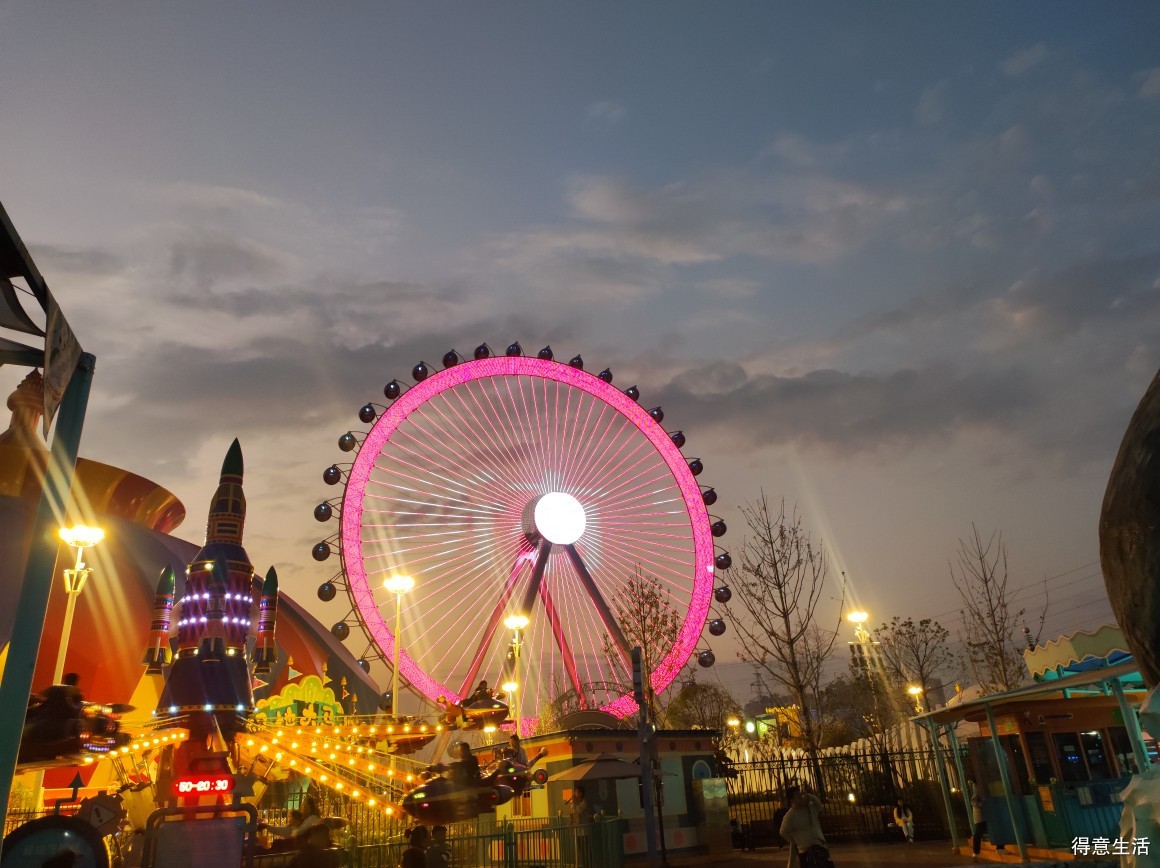
展 览 时 间 :2023年12月25日至2024年1月15日
展 览 地 址 :鹅社书店艺术馆(国金天地馆)
出 品 人.Producer :毛恒谊 Hengyi Mao
学术顾问Academic advisor:
钱志坚 Zhijian Qian 冀少峰 Shaofeng Ji
策 展 人.Curator :鞠腾 Teng Ju
生命乃至世界的往复因循——徐衍艺术项目
作品“THE EGG”以一幕虚构与上帝的相遇作为舞台,虽然与艺术家Andy Weir原作中获得的感知稍微有所不同,但这部影片传达于我们的,是关乎命运共同体、记忆与接纳此类话题。与其说是在死后同上帝对话,更觉得像一个懵懂而又永恒的生命体的静思。
艺术家通过作品想传达的观点是:“每一次你伤害别人,都是在伤害你自己。你所做的每一个善意的行为,都是对你自己做的。任何人类所经历的每一个快乐和悲伤的时刻,都是由你所经历的,或将由你所经历的。”这一观念与佛教的轮回有些许吻合,人类生命的轮回、我们相互依存的关系……思考假如宇宙这颗“蛋”真的如此运行着,那么人所遭受的种种命运,是否也可看作是另一个时刻的自己对当下的自己产生的某种影响?如此解读听起来或许消极,缺少一些激情,却能为人带来慰藉。我们是动作的发出者,亦是接受者。承受,接纳某一种记忆、命运、死亡的方式,即是接纳世界上所有的自己,亦是接受着这个不断成长和完善的世界,正如影片中的上帝所说,这一切的意义是:“让你成熟”。
徐衍的影视作品深入探讨人类存在的核心问题。其中预设了两种形态,即人间和全知全能的神的角度。在这个闭合的体系中,“我”作为主体提出的问题都是终极性的,这些问题关乎存在的本质、意义和价值,而它们的答案,都无一例外地指向了全知全能的“他”。既是人类对未知的敬畏,也是对解决问题的一种寄托。然而这样的寄托并非是空想的,而是建立在每个人的生命经验和自我意识之上的。每个人都在一生中不断地探索、追问、实践,试图找到属于自己的答案。但遗憾的是,每个人的一生都只能选择一条道路,只能以自己的方式去经历和体验生活。反思自己的生活,从中寻找意义和价值。而这种寻找的过程,也是人们对自我意识的深化的过程。
影视作品肯定了人类对自我的塑造。“将地上的记忆带上天”这些记忆包括人们的经历、经验和价值观等。这不仅是对个体的肯定,也是对整个人类历史和文明的肯定。因为每一个个体都是人类整体的一部分,个体经验也是人类整体经验的一部分。人类在不断追求自我完善和发展的过程中,通过积累经验和记忆,实现着自我塑造和提升。
每一转世的生命或许拥有新的记忆和经历,但每个灵魂所蕴含的知识和经验却如幽暗的烛光照着一整个历史。这些经验和知识在新的生命历程中逐渐苏醒,接纳他人与历史亦是接纳自我。个体与集体在作品中得到了独特的展现。短暂生命的记忆是我们作为个体成长的见证,而一颗蛋的集体记忆则是我们作为人类命运共同体的一部分对过去的共同感知和解读。
人与生命和宇宙的关系,是个过于庞大话题,以至于太多人究其一生无法厘清。我们正需要像徐衍的影视作品——教会我们以轻松的姿态去解构生命和宇宙关系的普世的问题。生命乃至于世界的往复因循,在这个循环中,刻意模糊时间的起点,让观者可以任意插入某一时点,由此再看向过去与未来,而这看到的过去其实也可能是未来,而看到的未来也可能是过去,至于这过去与未来,究竟是现实发生的记录结果,还是虚拟改造的场景故事?都是,也都不是。
The Reciprocal Cycle of Life and the World--Xu Yan Art Project
"The Egg" sets the stage for a fictionalized encounter with God, and although it differs slightly from the perception gained in artist Andy Weir's original work, the film conveys topics such as the community of destiny, memory, and acceptance. Instead of a conversation with God after death, it feels more like the meditation of an unknowing and eternal being.
The point the artist is trying to convey through his work is this: "Every time you hurt someone, you are hurting yourself. Every act of kindness you do is done to yourself. Every moment of joy and sadness experienced by any human being is experienced, or will be experienced, by you." This idea is somewhat consistent with the Buddhist concept of reincarnation, the cycle of human life, and our interdependent relationship...
If the "egg" of the universe is indeed working in this way, can the various fates suffered by human beings be viewed as the influence of the self of another moment on the self of the present moment? If this is the way the universe works, then can the fate of man be seen as the influence of his own self at another time on his own self in the present? Such an interpretation may sound negative and lack some passion, but it can bring comfort. We are the senders and receivers of actions. To bear, to accept a certain memory, a certain fate, a certain way of dying, is to accept all of ourselves in the world, and to accept the world as it grows and improves. As God says in the film, the point of it all is: "to make you mature."
Yan's film delves into the core issues of human existence. Two perspectives are presupposed: the earthly and the omnipotent God's. In this closed system, the questions posed by "Me" as the subject are all ultimate—they concern the essence, meaning, and value of existence. The answers are invariably directed toward the all-knowing and all-powerful "He." It is not only a reverence for the unknown but also a kind of trust in problem-solving. However, this trust is not imaginary; it is based on each person's experience and self-awareness.
Everyone is constantly exploring, inquiring, and practicing throughout their lives, trying to find their own answers. Unfortunately, each person can only choose one path in their life and can only experience it in their own way, reflecting on their own life to find meaning and value. This process of searching is also the process of deepening people's sense of self.
Film affirms human beings' ability to shape themselves. "Bringing earthly memories up to the heavens" encompasses people's experiences, values, and more. This affirmation extends not only to the individual but also to human history and civilization as a whole. Because every individual is a part of the human race, individual experiences are also integral to the collective human experience. In their continual pursuit of self-improvement and development, human beings realize self-shaping and upgrading through the accumulation of experiences and memories.
Each reincarnated life may bring new memories and experiences, yet the knowledge and experience contained in each soul resemble a shadowy candle illuminating an entire history. These experiences and knowledge gradually awaken in the course of a new life, and the acceptance of others and history is also the acceptance of oneself. Individuals and collectives are uniquely represented in the work. The memory of a short life serves as the witness to our growth as individuals, while the collective memory of an egg is our shared perception and interpretation of the past as part of the human destiny community.
The relationship between human beings, life, and the universe is a topic so vast that many spend their entire lives unable to clarify it. Films like Yan's are needed to teach us to deconstruct the universal issues of the relationship between life and the universe in a relaxed manner. In the cycle of life and the world, the starting point of time is deliberately blurred, allowing the viewer to insert a point in time at will, and then look into the past and the future. The past one sees may actually be the future, and the future one sees may be the past. Regarding this past and future, are they the recorded results of real occurrences, or are they the stories of virtually remodeled scenarios? Both and neither.













徐衍
Yan Xu









